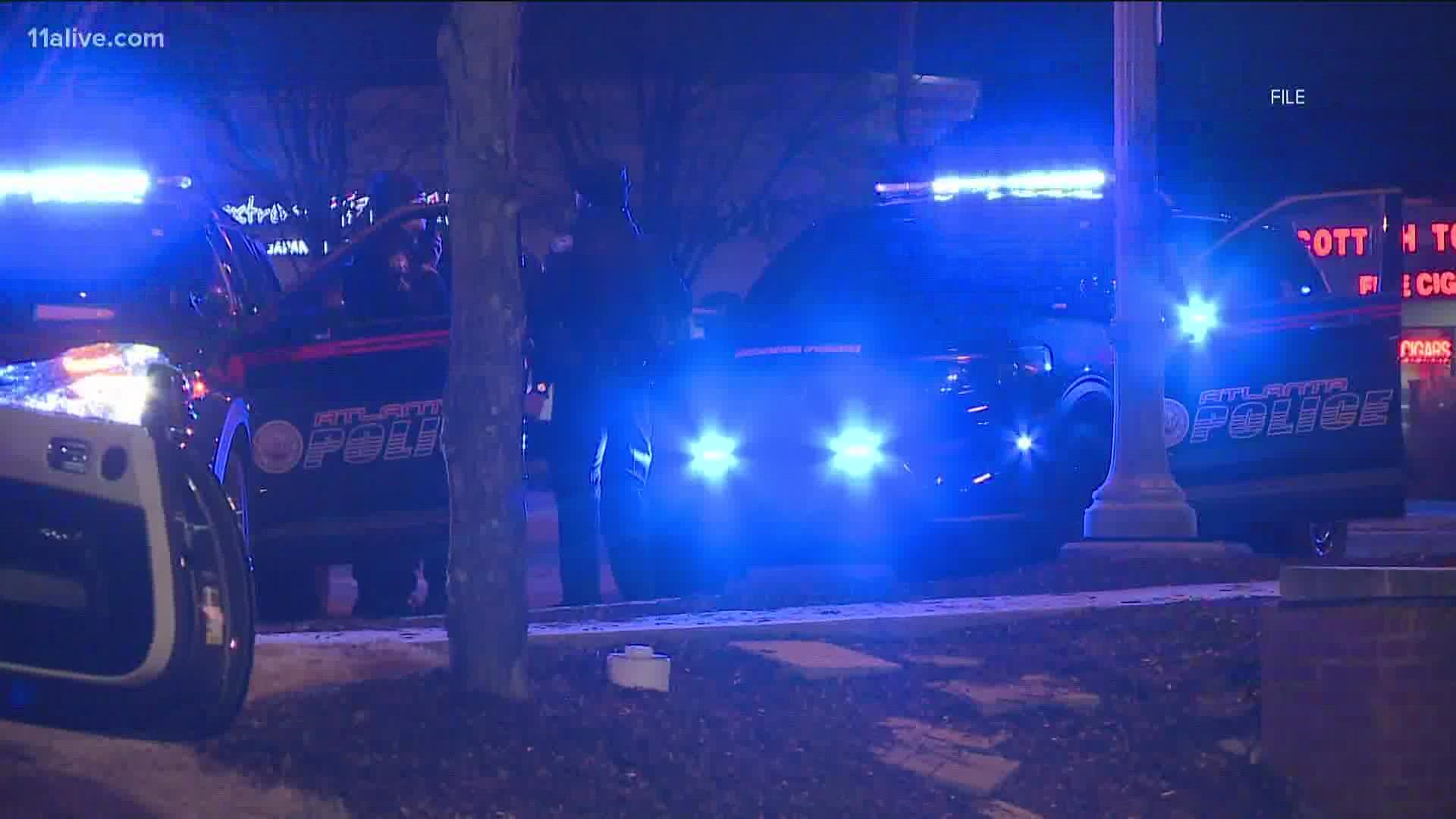ATLANTA — The City of Atlanta recorded its 103rd homicide over the weekend, according to Atlanta Police. The particularly deadly year comes on the heels of 2020, a year that saw 157 total homicides in the city.
At this point last year, Atlanta had 92 homicides. In 2019, the city had 63 homicides. Atlanta recorded 62 homicides in 2018. The spike has caught the attention of community leaders, including Dorthey Hurst, who works closely with public safety in the city. Hurst is part of the Atlanta Citizen Review Board. She cites a perceived proliferation of guns, car break-ins, domestic violence and nuisance businesses around the city as causes for the uptick in crime. She said a performance audit showed more than 100 aggravated assaults and nine homicides at restaurants and bars.
One restaurant shut down last week, citing spiking crime in Buckhead.
"These are people, they’re not numbers," Hurst said. "These are people. These are lives being lost. This is not just a city problem. It’s a city, county, state problem.”
In response to the violence, Atlanta Mayor Keisha Lance Bottoms created the Office of Violence Reduction, promised to hire more police officers and allocated $70 million in public and private funding to the Anti-Violence Advisory Council. So far, the council has made nine recommendations on how to combat crime in the city. Atlanta Police Chief Rodney Bryant has realigned some of the force, deploying more officers to areas with more crime calls.
Rep. Betsy Holland (D-Atlanta) said the state is increasing funding to Georgia State Patrol to help Atlanta Police. Governor Brian Kemp previously pledged to boost funding for law enforcement and give stricter punishment for those who commit violent crimes.
“I am hearing from constituents almost daily about the things they’re experiencing and hearing about," Holland said. "Sometimes, it’s not even that you have to be the victim of a crime or hearing of a crime happening in your neighborhood, it makes you think about public safety a lot differently. I would really like to see the legislature come together and come up with some great common-sense solutions to the gun violence problem.”
Holland said the state had a history of underfunding some of the root causes of crime, which she considered education, mental health and job training. She said the state could also take a closer look at gun laws to make sure firearms stay out of the hands of criminals.
"We’re also funding diversion programs, things that will get to young people before they join gangs, before they start committing crimes to try and prevent crime from happening in the first place," Holland said.
Public safety committees, tied to the Georgia General Assembly, have met over the summer to craft bills and determine which of them makes it to the floor by the start of a special session later in the fall or the new full legislative session in January. Hurst said solving the crime issue has direct implications to maintaining Atlanta's quality of life, especially as more people flock to Georgia's capital city.
"People want a safe place to live," Hurst said. "They want a safe place to visit, and those two things are tied hand in hand."

